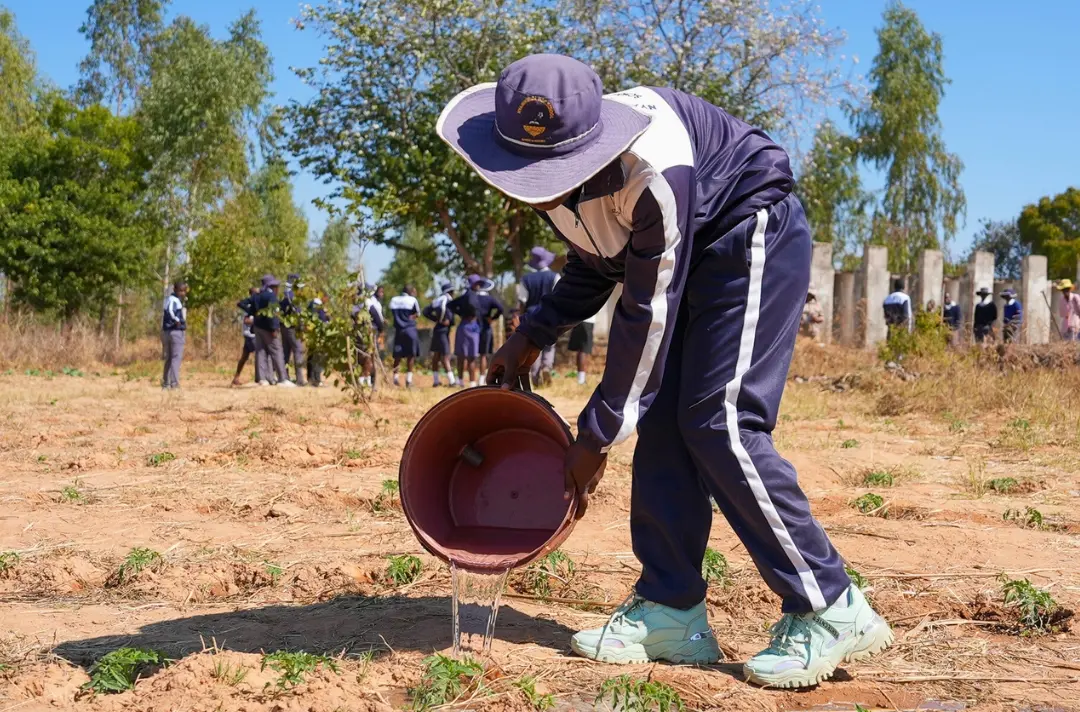7 June 2025
Why food security matters
Hayley Still

Following World Environment Day (5 June), Hayley Still reflects on the importance of food security.
Food is more than fuel – it’s a symbol of connection and culture. Around the world, meals are sacred spaces where people gather, exchange stories and strengthen community. There’s something powerful that happens when people sit down to eat together. It is intimate and relational. In the Bible, we see Jesus sharing meals with others: his family, friends and those from the communities he visits. These shared meals weren’t just about food but about inclusion, restoration and relationships.
But for many, food can represent struggle, scarcity and inequality. Millions of people around the world face food insecurity, hunger and malnutrition. At the same time, others struggle with a complex relationship with food, including disordered eating. In some places, access to healthy, nourishing food can be limited – for example, by cost or availability – while cheap, processed options are pervasive.
Our global experience of food is deeply unbalanced and unjust.
In 2024, more than 295 million people across the globe experienced acute levels of hunger – an increase of nearly 14 million from 2023. This represents 22.6 per cent of the population assessed. Conflict, economic shocks, climate extremes and forced displacement have continued to drive food insecurity and malnutrition globally. Recognising the impact that our actions have on others around the world, caring for creation becomes a matter of justice. Our choices – from what we buy to how we speak up – can make a difference.
In Zimbabwe, for example, the effects of climate change are stark. Unpredictable rainfall, prolonged droughts and extreme weather events have made traditional farming methods unreliable. For families dependent on the land, a failed harvest can mean the difference between life and death.
The Salvation Army is responding through the Raising Champion Farmers project, as featured in this year’s Helping-Hand Appeal. Across three divisions in the Zimbabwe Territory, 300 family farmers have been trained in conservation agriculture. By working in harmony with God’s creation, this method emphasises the importance of nurturing the land to strengthen rather than subdue it.
Training takes place at a demonstration plot in each division. Here, farmers learn techniques such as zero tillage, soil coverage, crop rotation and organic composting – methods that restore the soil and improve yields. Everyone contributes to the upkeep and, at harvest time, the food grown there is shared among the group. Farmers apply what they’ve learnt on their own land and share their learning with friends and neighbours to ensure even more people can benefit.
Just as a shared meal is about more than the food on the table, this project is about more than farming. It’s about connection, resilience and hope – building a future where families can thrive, not just survive.
Where have you seen food being used to bring people together? How does your faith shape the way you care for creation? In what ways can your corps or community support sustainable food practices locally and globally?
Reflect and respond
- Find out more about the Helping-Hand Appeal. How might you use the appeal to start conversations about caring for creation in your corps?
- Pray for communities facing food insecurity and for the success of projects like Raising Champion Farmers.
- Share the stories from the Helping-Hand Appeal in your corps and community to raise awareness and inspire action.
Written by

Hayley Still
UK Engagement Coordinator, International Projects Office











